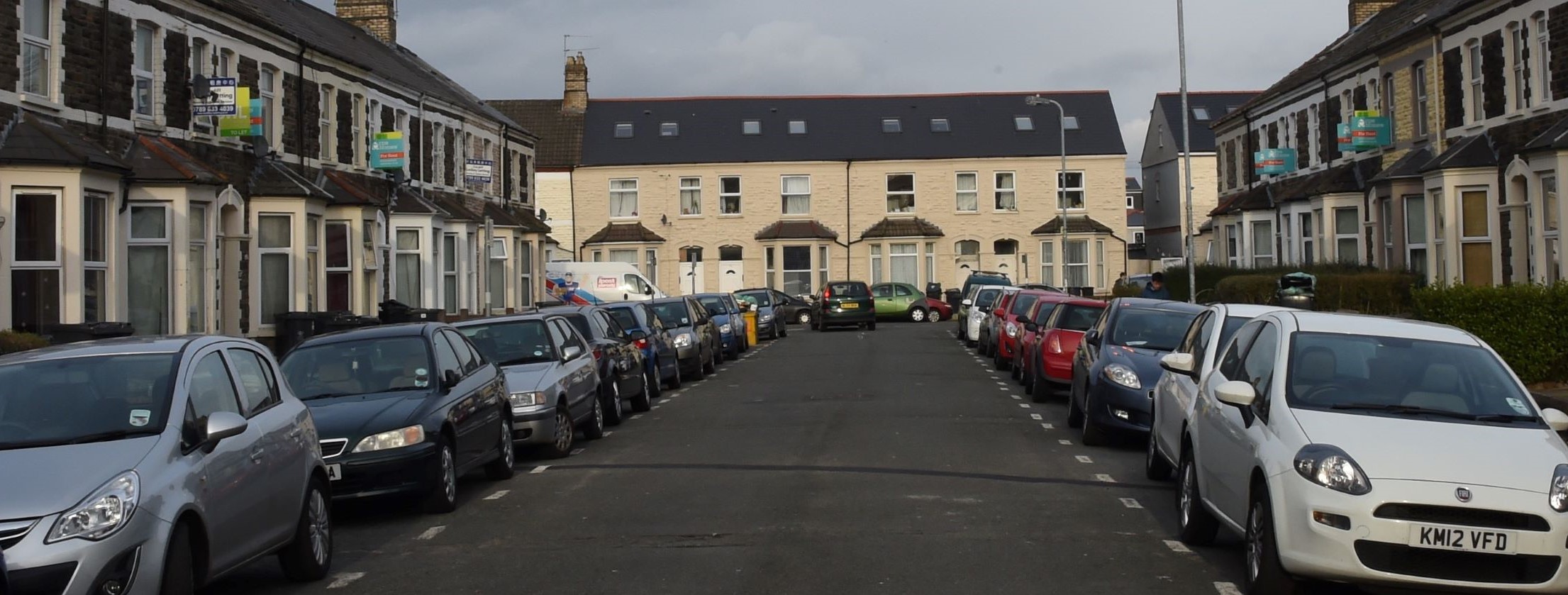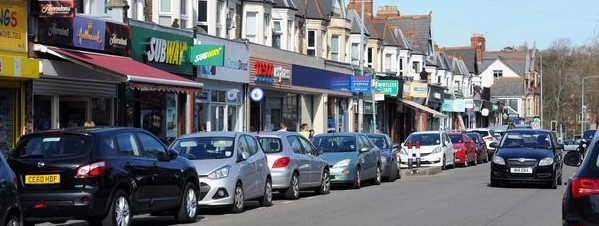Accommodation & Bills
There are a number of accommodation options available to you for your time in Cardiff. The four main options are detailed below, with full advice that we strongly recommend you read, on each of the following links:
- Cardiff University Residences. University Residences are shared student residences that are owned by the University.
- Private Halls. Private Student Halls are shared student residences that are privately owned by a landlord or company.
- Private Rented Accommodation. Private rented accommodation is houses and flats that are owned by private landlords and rented out under tenancy agreements.
- Temporary/Short Term Accommodation. Temporary accommodation is short-term accommodation that members of the public may be able to access if they are looking for somewhere to stay for less than six months.
The accommodation that is best for you and your studies will depend on what is important to you. If you want to be surrounded by other Cardiff University students in your first year, you may want to live in University Residences. If you are moving to Cardiff with your family, you may want to live together in a privately rented house.
Once you have agreed to a contract for accommodation, it can be extremely difficult, or even impossible, to get out of if you change your mind. It is important that you take the time to be as sure as possible about where you are choosing before you commit. Some points you may like to consider, depending on what is important to you, are:
- How quiet/noisy the accommodation is likely to be;
- How much the accommodation costs;
- If bills are included;
- If the accommodation shared with Cardiff University students;
- How family friendly the accommodation is;
- If there is on-site catering;
- If there is on-site laundry facilities;
- If there is on-site parking;
- If there is on-site exercise facilities;
- If there is on-site bike storage;
- If there are communal living areas;
- How modern the interior and decor are.
Please read our advice pages below before you sign or agree to a contract:
If you are looking at private rented accommodation, we also recommend that you read our advice pages on:
Watch out for scams
If you are looking at private rented accommodation, do not pay any money or agree to anything until you are sure that the landlord or letting agent and the property offered is genuine. International students can be targets for fraudsters, who take advantage of the fact that you are not in Cardiff. If someone sends you photos of videos of accommodation, it does not mean that they have any legal right to rent it to you.
Make sure the Landlord is registered with Rent Smart Wales and that that there is a registered licence holder. We also strongly advise against paying any money or agreeing to anything until you have seen the property in person and met any other tenants. Always ask that payments are made by bank transfer. If in doubt always seek advice.
Knowing the area
When you have decided what kind of accommodation you may want to explore, it’s important to consider what part of the local area you want to live in.
There are many areas you can choose to live in Cardiff but most students choose to live in Cathays, Roath, Maindy or Heath. Prices tend to increase the closer you get to the city centre and rooms and gardens also tend to be smaller. Moving further out means a longer commute but often cheaper rent, bigger houses and gardens. Ideally, you need to agree as a group what is more important to you; location, price or size.
-
Cathays

Cathays surrounds the Cathays Park campus and is very close to the city centre. It has a very high density of student accommodation, predominantly in shared houses, though flats are available. Cathays includes plenty of shops, pubs, takeaways and restaurants, all within walking distance. It offers a vibrant student community but can be noisy, especially closer to the Students’ Union and the city centre.
-
Roath
Roath is next to Cathays, moving away from the city centre. Depending on where you live in Roath, it is about a 15-20 minute walk to the Cathays Park campus and around a 25-minute walk to Heath Park. Although a bit further out, Roath is still considered an inner-city suburb, which offers a mixed community of students, professional single people and families. It is ethnically diverse and has plenty of shops, pubs, takeaways and restaurants, as well as green spaces. It offers a large range of rented accommodation and is a better place to look for flats.

-
Heath and Maindy
Heath wraps around the Heath Park Campus but most of Heath is further from the city centre and Cathays Park Campus. Maindy links Cathays to Heath. There are still plenty of shops, takeaways, restaurants and bars but Heath is big and in parts there are far less than Cathays and Roath. Whitchurch Road, for example, is almost entirely lined with places to eat and drink but moving closer to the hospital these become very sparse. There is generally less rented accommodation available and a much higher density of families.
Bills
Some bills are essential and failure to pay them in a timely manner could result in legal action against you. The following bills apply wherever you live in Cardiff (i.e University Residences or private accommodation):
Council Tax
Council Tax is a fee that non-student residents living in Wales, England or Scotland to pay for the local services. Council tax varies depending on the size of your property and where you live.
You will be exempt from paying Council Tax if you meet the Council Tax definition of ‘student’. Having a Tier 4 visa alone is not necessarily sufficient to meet this definition. Find out if you are eligible for council tax exemption here.
If you are living in University owned residences, or private halls accommodated only by students, you are exempt from paying council tax.
If you live in private rented accommodation, and you and all the named tenants in the property are “students” as per the UKCISA definition, you should be exempt from paying council tax.
If you are living with a non-student, or one of your housemates withdraw from study, you may be required to pay for council tax. Find out if this applies to you here.
If you take an Interruption of Study, and your Visa permits you to stay in the UK, you may still be regarded as a student for Council Tax purposes. This is only the case is you remain on a course that meets the criteria for ‘full time study’.
TV licence
The law says you need to be covered by a TV Licence to:
- watch or record programmes as they’re being shown on TV, on any channel
- watch or stream programmes live on an online TV service (such as ITV Hub, All 4, YouTube, Amazon Prime Video, Now TV, Sky Go, etc.)
- download or watch any BBC programmes on iPlayer.
This applies to any device you use, including a TV, desktop computer, laptop, mobile phone, tablet, games console, digital box or DVD/VHS recorder.
You can arrange to pay for your TV License on the TV Licensing website. If you need a license and do not have one, you can be fined up to £1000.
If you are living in private rented accommodation, your tenancy agreement or occupation contract should say who is responsible for paying bills (this is usually the tenant). If you are responsible for paying the bills, please see our Bills and Council Tax page.
Immigration health surcharge
Payment of the Immigration Health Surcharge should mean that you will qualify for the free NHS hospital treatment when living in the UK. The NHS (National Health Service) is a free healthcare service funded by the UK Government and National Insurance.
- If you are studying a full-time course which is less than six months in duration, with funding from the UK Government, you should receive free NHS hospital treatment without having paid the immigration health surcharge.
- If you are studying a full-time course which is less than six months in duration, without funding from the UK Government, and you have not paid the immigration surcharge, you should consider private medical insurance for your stay.
- If you are studying a full time course which is at least six months long you, and your spouse or civil partner, and any children (under the age of 16) should be entitled to free NHS hospital treatment (all family members must live in the UK for this to apply).
It is important that you have some kind of arrangement in place to insure your health. It is only how you do this that is optional.
Mobile Phone Contract
If you are going to be living in Cardiff for a significant period of time you may want to investigate what mobile phone deals are available to prevent any additional costs incurred through data roaming.
You may be able to invest in a Sim-Only contract, compatible with your current device, to keep your bill down while you’re in the UK. There are lots of deals available, so we would advise you to search the internet for a deal that suits you.
Contact Student Advice
Advice@cardiff.ac.uk
+44 (0)2920 781410